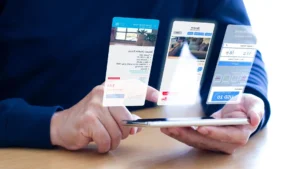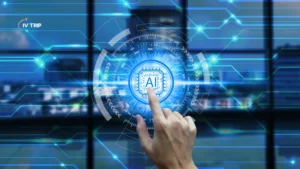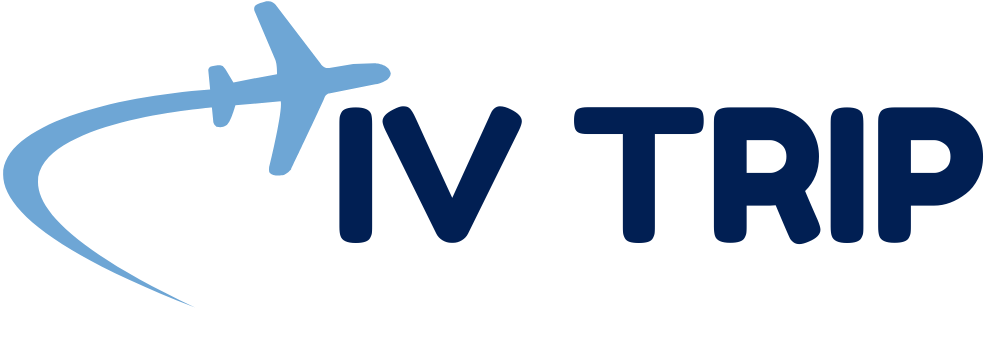Personalized Travel Experiences with Big Data & AI

Travel planning is no longer one-size-fits-all. Today’s travelers expect personalized travel experiences – itineraries and offers tailored just for them. Behind these unique journeys are mountains of data and powerful AI tools. By analyzing browsing history, booking behavior, social media trends, and more, travel companies can craft personalized travel experiences that delight each customer. In this article, we explain how big data and AI work together to transform the travel industry, making trips smarter, more seamless, and uniquely tailored to you.
The Era of Personalized Travel Experiences
Travelers today compare experiences, not destinations. They expect hotels to recall their breakfast preferences, airlines to remember their seat choices, and apps to suggest hidden gems. Personalization isn’t a perk anymore — it’s the standard. Research indicates that 71% of consumers expect personalized experiences, and 76% are willing to switch brands if they don’t receive them (McKinsey).
Personalization runs on data management — past trips, searches, loyalty activity, even social media cues. Big data analytics turns this into insight: families who loved a beach resort might be offered snorkeling packages next time. McKinsey reports that companies excelling at personalization earn up to 40% more revenue than their competitors.
In practice, this means that every traveler sees something different — a ski lover sees alpine lodges. At the same time, a beach enthusiast receives flight alerts to Bali. It’s not magic; it’s data in action. By combining traveler insights with AI, travel brands can deliver journeys that feel genuinely personal — experiences tailored to each traveler’s unique story.

Big Data: The Foundation of Personalized Travel
Big data is the fuel for personalization. The travel industry collects vast amounts of information: flight and hotel bookings, customer profiles, social media reviews, and even location data from mobile apps. As one guide explains, travel firms can gather large amounts of data from “surveys, marketing campaigns, and past purchases” to craft tailored experiences. The more data points you have, the better you understand each traveler.
Common data sources include:
- Structured Data: Booking records, CRM profiles, transaction logs, and loyalty programs – these give a clear history of what a traveler has done and bought.
- Unstructured Data: Social media posts, emails, photos, and videos – this shows more subtle preferences (did someone “like” a beach photo on Instagram?).
- IoT and Sensor Data: Smart suitcases, wearable trackers, and in-hotel sensors – these provide real-time signals (such as a connected luggage notifying its location).
With big data analytics, travel companies mine this information. They segment customers by behavior, analyze trends, and predict demand. For instance, an agency could notice that a traveler frequently books hiking tours in June, so it might offer a custom package of mountain treks and cabin stays. Or by analyzing past booking seasons, a hotel chain can forecast when families vs. business travelers will peak, and tailor promotions accordingly.
Data analytics platforms in travel (like Implevista’s IV Trip) ingest all this data. They generate insights such as: “Customers who took safari tours also book wildlife documentaries” or “Frequent flyers from Europe often seek Italian food experiences.” By surfacing these patterns, agencies can propose trips that feel hand-picked. As one case study puts it, IV Trip can “offer personalized travel services, propose destinations based on previous trips,” and even send customized promotions.
Analysts often utilize machine learning and predictive models to analyze large datasets. For example, predictive analytics can forecast that a particular traveler will need a hotel booking reminder a week before departure or flag that flight delays are likely, suggesting an alternate plan in advance. The result is a smoother, more personalized trip where the service even anticipates needs.
The Use of AI in the Travel Industry: Enhancing Personalization
Today’s personalization would be impossible without AI. Machine learning (ML) and AI algorithms transform raw data into actionable insights. Let’s explore how AI in the travel industry powers personalized travel experiences.
- AI-Driven Recommendations and Itineraries: Advanced recommendation engines learn your style by analyzing data from your searches, past trips, and even what similar travelers liked. For example, some platforms generate custom travel itineraries based on user preferences and dates. These AI tools sift through thousands of options in seconds, matching you with hotels, activities, and restaurants you’re most likely to enjoy. Over time, the AI improves: if you skip museums and opt for food tours, it will adjust future suggestions accordingly — creating more accurate and enjoyable personalized travel experiences each time you plan.
- AI-Powered Chatbots and Virtual Assistants: Many travel companies now use chatbots to handle customer service. Unlike traditional IVR systems, AI chatbots understand natural language and can respond to queries 24/7. For instance, instead of waiting on hold, you might text a travel assistant: “Change my flight to Paris next month.” The AI quickly processes your request and rebooks it, often faster than a human agent. According to Implevista, AI chatbots in travel software can provide round-the-clock support, answer questions, manage cancellations, and share travel info – all in a human-like conversational way. These assistants ensure no traveler is left stranded, providing help at any hour and further enriching personalized travel experiences with immediate, human-like service.
- Dynamic Pricing Optimization: AI systems constantly analyze factors that influence price–demand, competition, weather, and local events – to set optimal rates. For example, if AI detects a surge in demand for flights to Tokyo during a festival, it will raise prices slightly to match. Conversely, it can drop prices when there are few people looking. This means travelers see prices that reflect real conditions, and companies maximize revenue without losing customers — another layer of smarter, personalized travel experiences powered by AI.
- Real-Time Trip Assistance: AI isn’t just for planning; it helps during the trip too. Location-based services can dynamically adjust recommendations. For example, a travel app might alert you to a nearby street fair this afternoon, or reroute you if rain starts. Augmented reality (AR) features, powered by AI, can identify landmarks through your camera and provide real-time guided tours. Machine translation tools instantly break language barriers. All these use AI on-device or in the cloud to enrich and enhance your on-trip experience, ensuring every journey feels like one of your own personalized travel experiences.
- Predictive Analytics for Smarter Travel: AI models can predict things like flight delays or road traffic before they happen. Airlines analyze flight data, weather forecasts, and schedules to warn you of a possible late arrival. Hotels might predict a surge in demand and open more rooms. Agencies can forecast popular destinations and prepare personalized promotions. One example: predictive analytics warns passengers of delays, suggests alternative routes during high traffic, or highlights less crowded attractions. In short, AI-driven predictive insights smooth out travel pain points before you notice them — giving travelers more control and reliability in their personalized travel experiences.
- Automated Processes and Efficiency: Behind the scenes, AI automates routine tasks to let staff focus on personalization. AI powers self-service kiosks, automated check-in, and intelligent booking engines. Customer Relationship Management (CRM) systems powered by AI automatically track customer profiles and trigger personalized emails or offers. For example, suppose IV Trip’s CRM sees you’re celebrating an anniversary on your next booking. In that case, it might automatically include a champagne offer. By handling the mundane, AI enables travel professionals to spend more time crafting meaningful, personalized travel experiences that emotionally connect with each traveler.

Benefits of Personalized Travel for Companies and Travelers
Personalized travel is a win-win. Customers feel valued, and businesses see tangible gains:
- Higher Customer Satisfaction and Loyalty: When travelers feel a trip is “made for me,” they’re happier and more likely to return. Companies that personalize booking or service report higher satisfaction scores. For example, one travel agency experienced a 40% increase in satisfaction after implementing AI-based recommendations and chat support. Personalization fosters loyalty, encouraging customers to book with the same brand again. McKinsey notes that personalized communications significantly boost repeat purchases.
- Increased Revenue: Personalization often leads to higher revenue. It enables up-selling and cross-selling: if the system knows you love spa treatments, it might offer a hotel spa upgrade. Dynamic pricing ensures companies capture the maximum value per booking. Studies show top personalization performers increase revenue by roughly 10–15%, with digital natives sometimes lifting revenue by up to 25%.
- Better Efficiency and Cost Savings: AI handles routine queries and tasks, leading to significant time and cost savings. Chatbots are expected to reduce call center load by 85% by 2025, according to some estimates. Automated itinerary tools cut planning time, and intelligent systems prevent overbooking or errors. Internal staff can then focus on creative tasks (like designing a unique tour) rather than repetitive work.
- Data-Driven Insights: With big data, companies gain a deeper understanding of their customers and their needs. They can identify travel trends early and react more quickly than their competitors. Data analytics dashboards highlight which destinations are in high demand, which packages are most effective, or which segments prefer adventure trips. This insight enables marketing budgets to be directed more effectively, keeping offerings fresh and relevant.
- Competitive Edge: Personalization differentiates brands. In a crowded market, travel agencies or airlines that deliver custom service stand out. Forbes predicts hyper-personalization will be the norm in travel, with every aspect tailored to individual needs. Early adopters of AI-powered personalization can capture market share from less adaptive competitors.
Challenges and Considerations in Personalized Travel
Building personalized experiences isn’t without hurdles. Travel companies must navigate challenges carefully:
- Data Privacy and Security: Personalization requires the collection and use of personal data. Keeping traveler data secure is paramount. Travel firms must comply with the GDPR, CCPA, and other relevant laws, and ensure the use of strong encryption and authentication. Breaches or misuse of data can ruin trust. Companies should be transparent about how they use data, allowing customers to control their own information.
- Data Quality and Integration: Big data only helps if it’s accurate and accessible. Travel companies often have siloed systems (e.g., separate booking, CRM, and partner data). Integrating these sources and maintaining their integrity is complex. Bad or outdated data can lead to wrong assumptions (e.g., offering ski tours to someone who hates cold weather). It requires skilled analysts and robust data pipelines.
- Algorithmic Bias and Fairness: AI models trained on incomplete or biased data can make poor recommendations. For example, a hotel recommendation engine might overlook certain demographics if its training set is skewed. Travel companies should audit AI outputs and utilize diverse data to prevent unintentional biases in pricing or recommendations.
- Maintaining Human Touch: While automation boosts efficiency, travelers still crave genuine human interaction at times. Over-reliance on AI can feel impersonal. The best approach is a hybrid one: automated assistants for routine tasks, with real agents ready to step in for complex or high-value services. For instance, a chatbot can handle a flight change, but a concierge might personally call VIP travelers with special offers.
- Regulatory Compliance and Ethics: The travel industry spans multiple countries, each with distinct rules governing data and AI. Companies must monitor changing regulations on AI use and customer data (such as new EU AI laws). Ethical use of AI also means keeping humans in the loop on critical decisions (e.g., refund approvals) and not deceiving customers (clearly disclosing when they’re interacting with a bot).
Despite these challenges, a responsible, well-planned approach enables travel companies to maximize personalization while building trust. Clear privacy policies, explainable AI practices, and ongoing human oversight are key.

Implementing Personalized Travel Solutions
How should a travel company start building personalized experiences? A step-by-step approach helps:
- Gather Rich Data: First, consolidate available data. Pull historical booking records, customer profiles, and feedback into one system. Encourage customers to complete profiles or preferences. Use analytics tools to collect real-time data from websites, apps, and IoT devices (like smart kiosks or mobile apps). More data (with consent) means smarter personalization.
- Invest in Data Analytics and AI Platforms: Select software that can effectively process large datasets. Modern travel management systems offer built-in analytics, AI recommendations, and integration with booking engines. For example, IV Trip’s CRM, as a unified platform, lets agents track client preferences, past bookings, and other data all in one place. This way, personalization comes from the same system agents use daily.
- Leverage Machine Learning Tools: Use machine learning models to analyze the data. Recommendation engines can suggest hotels or tours, chatbots can be trained on travel FAQs, and predictive models can forecast demand. Many cloud services (like Google’s Recommendations AI) simplify this – you can plug in your data and get models that suggest what a traveler might want.
- Integrate AI Across Customer Touchpoints: Personalization works best when it’s consistent. Integrate AI assistants on your website, apps, and social channels. For example, Facebook Messenger bots can handle simple queries; your booking portal can display dynamic recommendations; and email marketing systems can automatically send tailored offers. Combining these channels means the traveler sees personalization at every stage.
- Train Your Staff: Even with AI, human expertise matters. Train agents to understand and use the AI tools. For example, agents should be able to interpret AI recommendations and intervene when necessary. Getting buy-in is crucial: explain how AI chatbots and tools will help them serve customers faster, not replace them. As one guide suggests, staff training is key when introducing new AI tools to overcome resistance.
- Monitor and Refine: Finally, measure the impact. Track key metrics such as booking conversion, customer satisfaction, and revenue growth. Use A/B tests: show some customers personalized itineraries and see if they book more often. Continuously feed new data back into the AI models (machine learning improves with more data). Over time, a feedback loop of data • AI insights • personalization • results will optimize the system. Implevista notes that businesses should “monitor evolving regulations” and adapt. Similarly, companies should monitor AI outputs and regulations to stay compliant.
By following these steps – data collection, AI integration, cross-channel delivery, training, and continuous improvement – travel companies can implement powerful personalization programs.
The Future of Personalized Travel and AI
- Generative and Agentic AI: Next-generation AI models, such as Google Cloud’s Gemini, will enable deeper personalization by analyzing multiple inputs—photos, budgets, and preferences—to design comprehensive travel plans. Agentic AI will go further, taking actions autonomously to create seamless, end-to-end journeys.
- Conversational AI Assistants: Voice-driven travel concierges will soon manage bookings, payments, and itinerary changes through natural conversation. Early tools, such as Swifty, powered by GPT-4, already demonstrate how AI can plan and execute entire trips independently.
- Hyper-Personalization through Multimodal AI: Future systems will combine text, images, and behavioral data to provide a more precise understanding of traveler intent. AI may draw insights from social media or wearable health data to recommend wellness getaways or cultural tours. At the same time, hotels could use facial recognition (with consent) for personalized service.
- Sustainable and Responsible Personalization: AI will personalize not just experiences but also eco-friendly options—selecting greener transport, energy-efficient hotels, or local experiences that align with a traveler’s values.
- Connected Personalization Across the Ecosystem: With secure data sharing, airlines, hotels, and agencies will build unified traveler profiles. This will enable a cohesive experience—preferred seats, rooms, and dining reservations automatically aligned across providers.
- In essence, AI is reshaping travel into a smarter, more connected, and more sustainable ecosystem—delivering truly personalized travel experiences at every step.
Personalized travel isn’t just the future — it’s the new expectation. The agencies that understand how to turn data into meaningful traveler experiences will lead the next wave of growth in the industry.
At Implevista, we make that transformation possible. With the IV Trip platform, your agency can move beyond generic packages and start creating journeys shaped by insight, not guesswork. Our AI-driven tools help you understand your customers better, respond more quickly, and deliver experiences they’ll truly remember.
Ready to take the next step? Contact IV Trip to discover how our technology can enhance your travel business. You can also explore our AI-powered travel solutions or browse the IV Trip Blog for practical ideas and success stories from forward-thinking travel brands.

FAQs: Personalized Travel Experiences
What are personalized travel experiences?
Personalized travel experiences are trips or services tailored to an individual’s preferences, habits, and needs. Instead of one-size-fits-all offers, companies use data (such as past bookings, profile information, and behavior) and AI to customize itineraries, accommodations, and activities for each traveler. This can include recommending specific restaurants, providing preferred room settings, or dynamically adjusting packages to match a customer’s preferences.
How do big data and the use of AI in travel industry create personalized travel experiences?
Big data provides the raw information, including customer profiles, booking history, and social media feedback. AI algorithms then analyze this data to find patterns and preferences. For example, AI might notice that a customer often books adventure tours so that it can suggest similar activities. Machine learning models can automatically generate itineraries, predict traveler needs, or offer special deals. The synergy of big data and the use of AI in travel industry makes personalized travel experiences possible at scale.
What is an example of personalized travel technology?
One example of personalized travel experiences technology is an AI-driven itinerary planner. For instance, a travel platform could utilize machine learning to generate a personalized daily schedule tailored to your interests. If you enjoy museums and local cuisine, consider booking a museum tour and reserving a table at a well-reviewed local restaurant each day. Another example is a hotel app that learns your room preferences (like temperature or pillow type) and applies them automatically.
How do AI chatbots improve the travel experience?
AI chatbots act as 24/7 virtual travel assistants. Instead of calling customer service, a traveler can text a chatbot to change a flight, check in to a hotel, or ask for travel advice. The chatbot uses natural language processing (NLP) to understand requests and then executes them or connects to reservation systems. This immediate, personalized support eliminates wait times, making services available anytime and enhancing customer satisfaction, ultimately improving personalized travel experiences.
What is dynamic pricing in travel?
Dynamic pricing is a method where travel companies utilize AI to adjust prices in real-time based on demand, competition, and other relevant factors. For example, if many travelers are searching for flights to Paris during a holiday week, AI may raise fares slightly. If demand drops, AI can cut prices to attract bookings. This ensures that prices reflect market conditions and can also allow for personalized discounts or offers based on customer profiles, thereby enhancing the overall personalized travel experience.
Are there privacy concerns with data-driven travel personalization?
Yes, personalization relies on personal data, so privacy is crucial. Travel companies must safeguard data (with encryption and security) and comply with regulations like GDPR. They should use data responsibly and transparently. For example, asking customers to opt in to data sharing or clearly explaining how their information will be used. Building trust and giving travelers control over their data are crucial components of delivering personalized travel experiences.
How do travel companies use predictive analytics to help travelers?
Predictive analytics uses historical and real-time data to forecast future events. In travel, this means predicting flight delays, optimizing packing lists, or alerting about weather changes. For instance, if data indicates a frequent rain pattern at a destination, an app might warn travelers to pack rain gear. Airlines use it to adjust schedules in advance, and hotels use it to anticipate check-in volumes. The result is smoother, smarter, and more personalized travel experiences.
What benefits do travelers get from personalization?
Travelers enjoy more relevant recommendations and fewer hassles. Personalized travel experiences mean they spend less time searching and more time enjoying. It can make trips more comfortable (rooms set up just how they like), convenient (flights and hotels aligned to their routine), and memorable (surprises or upgrades based on their interests). Overall, personalization aims to make each journey as satisfying as possible for the individual.
What challenges do companies face with personalized travel?
Key challenges include accurately handling large volumes of data, ensuring data privacy, and mitigating algorithmic bias. Integrating data from different sources (flights, hotels, social media) can be complex. Companies also must balance automation with human service and stay compliant with regulations. Overcoming these requires investment in secure infrastructure, skilled teams, and ethical AI practices to deliver reliable personalized travel experiences.
What does the future hold for AI in travel?
The future is promising. Emerging AI models (like generative and agentic AI) will enable even deeper personalization. Travel planning could become conversational: you might chat with an AI, saying, “Plan my dream trip,” and receive a fully booked itinerary in seconds. Real-time personalization will improve with wearable tech and IoT. We’ll likely see autonomous travel assistants that handle everything from booking to support—making personalized travel experiences more intuitive, dynamic, and human than ever before.

